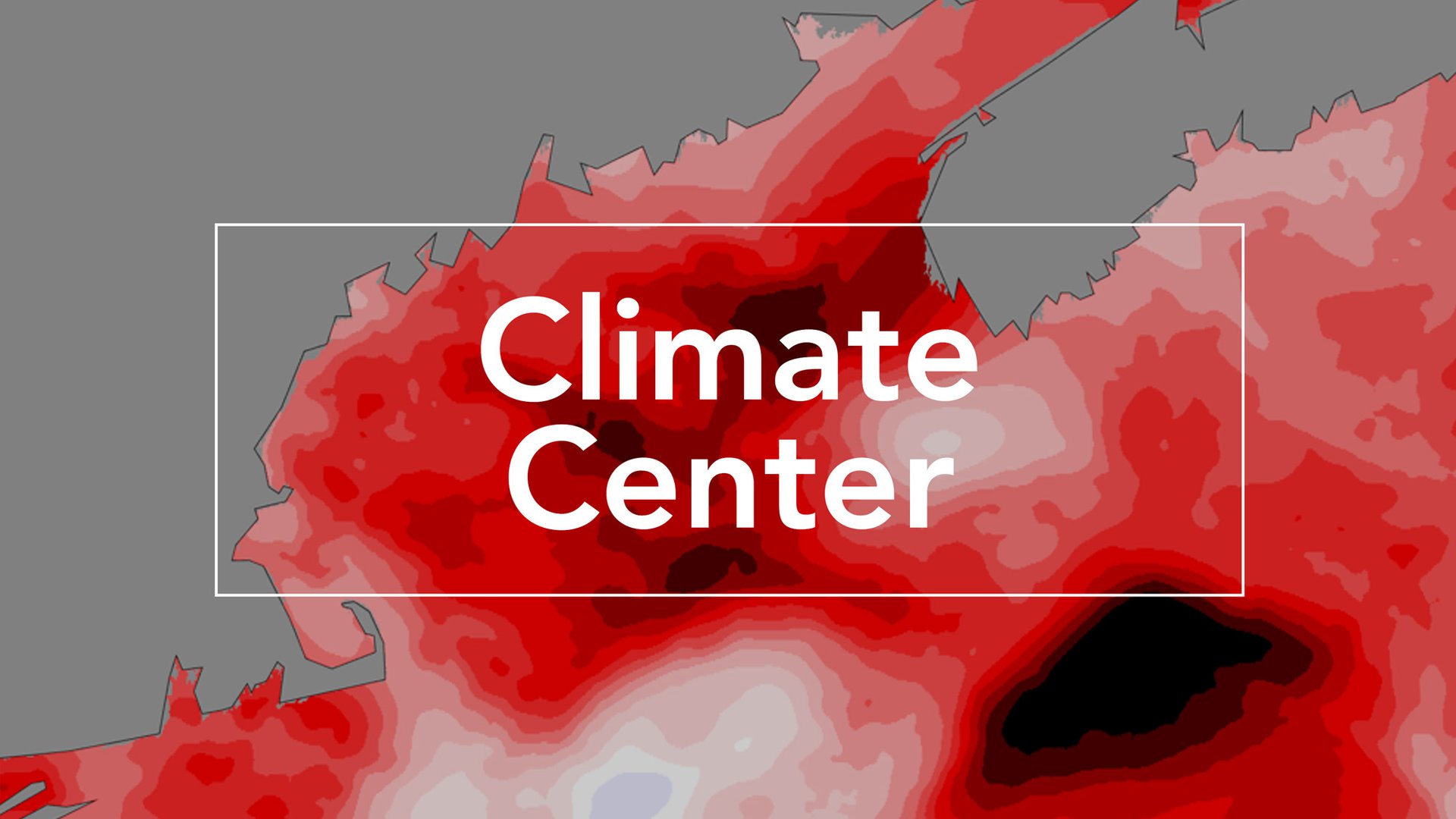New Climate Center Announced
Announcements | Dec 31, 2019
In September, we announced the launch of a new interdisciplinary center focused on solutions to local, regional, and global challenges related to ocean warming.

Over the course of the last decade, scientists from the Gulf of Maine Research Institute have led a body of research that identified the Gulf of Maine as one of the world’s fastest-warming ocean ecosystems.
As has now become widely known, GMRI scientists previously found that over the last 30 years, the Gulf of Maine warmed at a rate of 0.06°C per year (0.11°F per year) — faster than 99% of the global ocean, and more than three times the global average.
Now, we've announced the launch of a new interdisciplinary center focused on solutions to local, regional, and global challenges related to ocean warming. By creating a new virtual center within the organization’s existing Commercial Street lab in Portland, we will leverage our unique mix of science, education, and community expertise to provide forward-looking leadership.
“We’ve spent the last decade identifying warming trends and associated challenges in our bioregion,” said CEO/President Don Perkins. “We’ll spend the next decade identifying solutions to some of these challenges and helping coastal communities adapt to a warmer future. Furthermore, we know the solutions we develop locally will be relevant to other communities around the world as they grapple with similar challenges.”
In addition to regional warming trends, the new climate center builds on the our scientists' recent global research, which reflects the need for communities to make forward-looking decisions in the face of change.
For generations, people have made decisions based on their past experiences. Rapid warming means the past is unreliable for predicting the future, requiring a paradigm shift in how we make decisions.
Andrew Pershing, Ph.D. Adjunct Scientist & Former Chief Scientific Officer![]() Andrew Pershing, Ph.D. Adjunct Scientist & Former Chief Scientific Officer
Andrew Pershing, Ph.D. Adjunct Scientist & Former Chief Scientific Officer
Major climate projects are already underway. In the last year, GMRI has raised and deployed more than $2 million in federal and national foundation funding on projects that contribute to the resiliency of communities throughout the Gulf of Maine.
Examples of the early vision of the center in action include:
- Convening International Experts: In November, we cohosted the Gulf of Maine 2050 International Symposium to bring ocean leaders from across New England and Maritime Canada together to synthesize environmental, economic, social, and institutional perspectives on coastal climate resilience.
- Helping Fishermen Adapt: Research Scientist Dr. Kathy Mills is leading a suite of collaborative projects exploring how fish abundance and distribution will change in a warming ocean. Her team is translating that data into port-specific economic vulnerability assessments throughout the Northeast and is working with communities to identify climate-resilient fishing strategies for the future.
- Driving Climate Ready Fisheries Management: Research Scientist Dr. Lisa Kerr is leading an interdisciplinary, multi-organization team to explore how fisheries management strategies will perform in a changing climate. Her team will host interactive workshops for both fishermen and fisheries managers in Portland and other fishing communities. Together, the group will contribute to the development and testing of climate-informed fisheries management strategies.
- Preparing Communities for Sea Level Rise: Science Education Program Manager Gayle Bowness is leading interactive programs to raise awareness and draw new audiences into important conversations about sea level rise. She teams with municipal leaders to assemble relevant resources, tools, and data visualizations to improve community understanding of expected sea level rise and local planning for impacts associated with coastal flooding.
- Educating the Next Generation of Ocean Stewards: Chief Education Officer Leigh Peake and her team have completely reimagined our long-running LabVenture program, which now serves a climate-focused science experience to thousands of Maine middle schoolers each year and will soon expand to engage adult learners.
In the coming months and years, new funding and expanded partnerships will magnify the impact of the new climate center, which will support climate-ready fishery management, aquaculture business planning, community adaptation, seafood supply chain innovation, and analysis and advice on mitigation policy options.
“We have a unique mix of oceanographers, ecologists, economists, and data scientists who specialize in predicting and contextualizing changes in the marine environment,” said Perkins. “But, unlike most research labs, our scientific perspective is balanced by decades of experience delivering high-impact education programs and convening diverse groups of marine stakeholders to solve complex problems. This integrated approach prepares us to tackle the challenge of supporting real-world climate decisions as part of this new center.”



